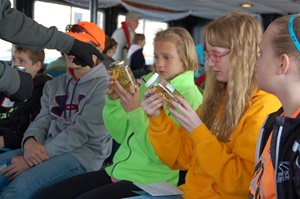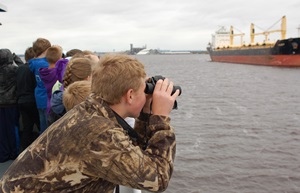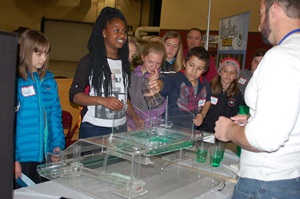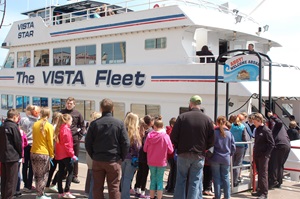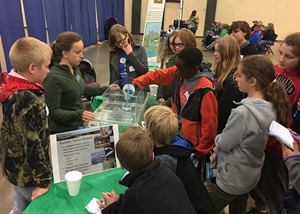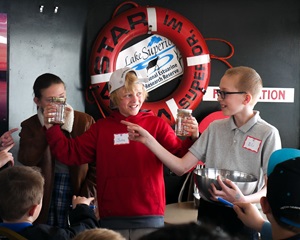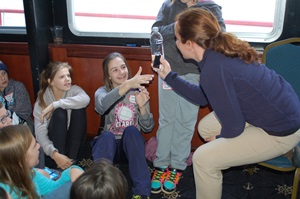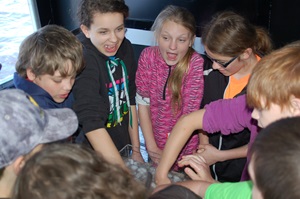On a quest for success: How Lake Superior youth are being raised to protect their waterways
St. Louis River Quest celebrates its 26th year of outreach education in the Twin Ports
Fifteen hundred Grade 6 students over four days. It’s a bit like drinking from a water hose, admits a St. Louis River Quest organizer, but it works.
“By sixth grade, they’re at that point where they can digest a lot of information and begin to engage in critical decision making as they transition into teen years,” says Adele Yorde of students’ retention abilities after a morning or afternoon River Quest session.
In the Twin Ports region of Duluth, MN and Superior, WI, the annual River Quest has enriched the minds of over 25,000 youth surrounding the St. Louis River since 1993.
With a River Quest passport in hand, students cycle through 12 learning stations. They learn various aspects of the Duluth-Superior estuary—learning on water and on land via the Vista Star and Pioneer Hall, respectively.
Presenters from the likes of the U.S. Army Corps of Engineers, the U.S. Coast Guard and Minnesota Power prepare quick 10-minute presentations for students. Topics range from hydroelectric power, sustainable forestry, and watershed pollution to “fishy physics,” water safety and the shipping industry that’s made the Twin Ports the “Great Lakes cargo capital.”
It’s a special sort of career day for students that would otherwise remain in a textbook.
“We’ve traditionally held the stations aboard the Vista Star, but we figured to really grow we needed to expand on land,” says Yorde, who’s also public relations director with the Duluth Seaway Port Authority, the lead sponsor of River Quest since its inception. “We were at a point where we had hit our maximum on the boat.”
Image gallery: St. Louis River Quest
Enbridge’s annual $1,000 community sponsorship goes toward overall operations of River Quest throughout the year, in support of the four-day event every May.
With a quarter-century under its belt, the organization is hoping to establish an endowment in the near future to alleviate its dependency on giving and sponsorships.
“The other 361 days of the year that we’re not actually running River Quest, we are right back to planning and fundraising for the next year,” says Yorde.
For some students, navigating the estuary marks their first experience on a boat or body of water.
“The whole program is especially important for the students that will grow up to live here in the Duluth-Superior area. It explains to them the responsibility they have to their region but also gives them the tools to ensure it is maintained,” says Yorde.
While students spend their time learning the signs of hypothermia, and discovering how industrial water is reduced, reused and recycled, Yorde sees the eagerness and engagement among the youth.
“There’s just something about being on the edge of the greatest of the Great Lakes and being able to soak it all in,” she says.




